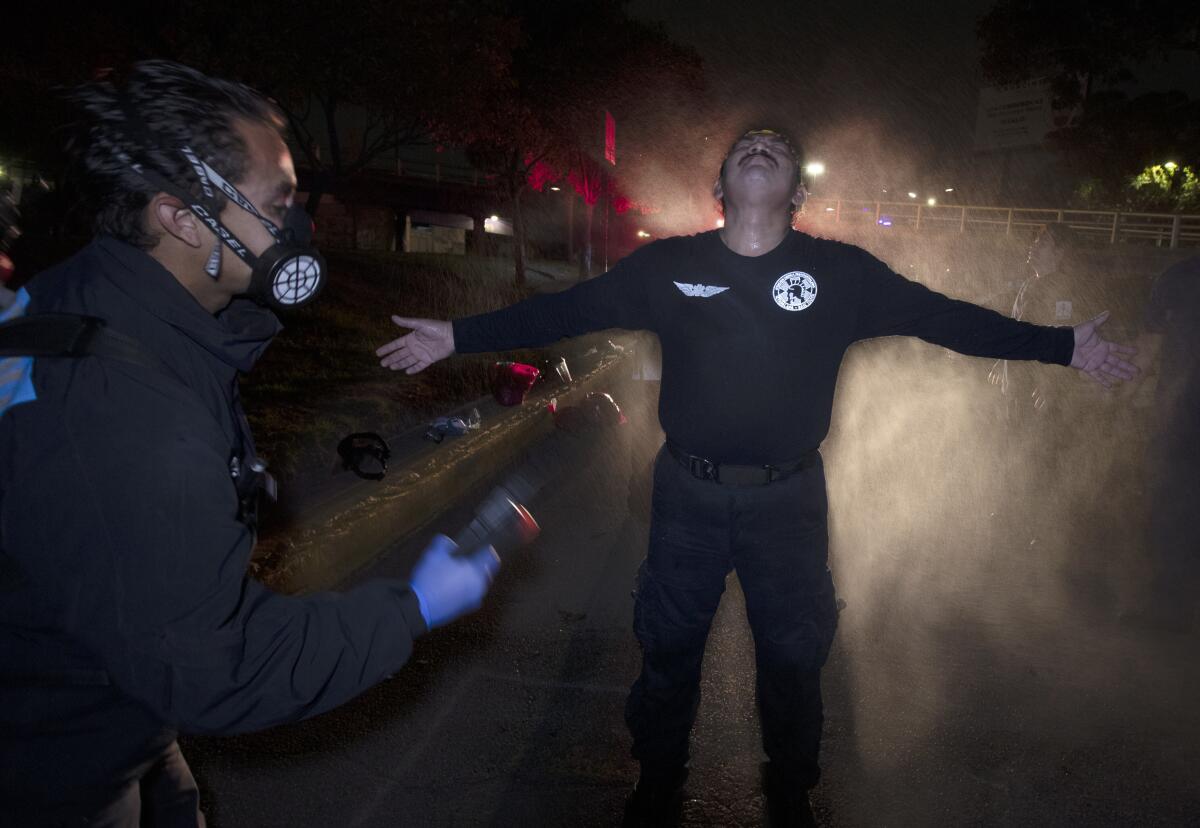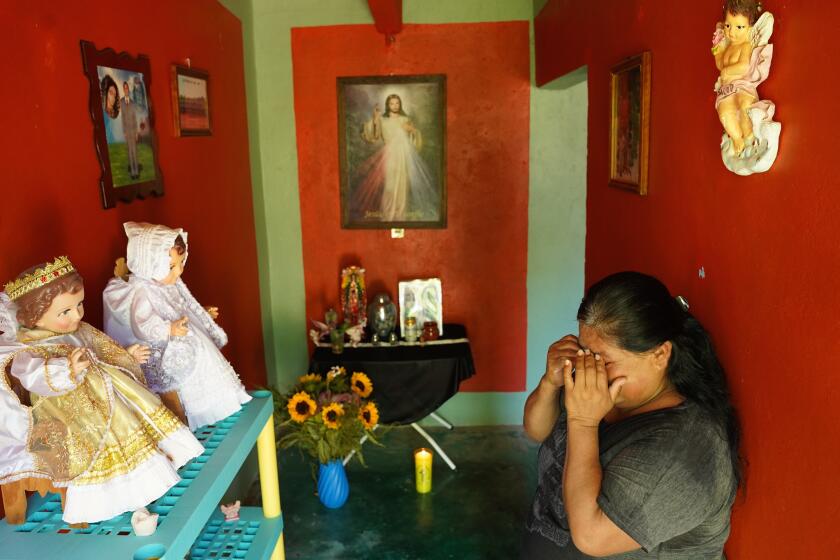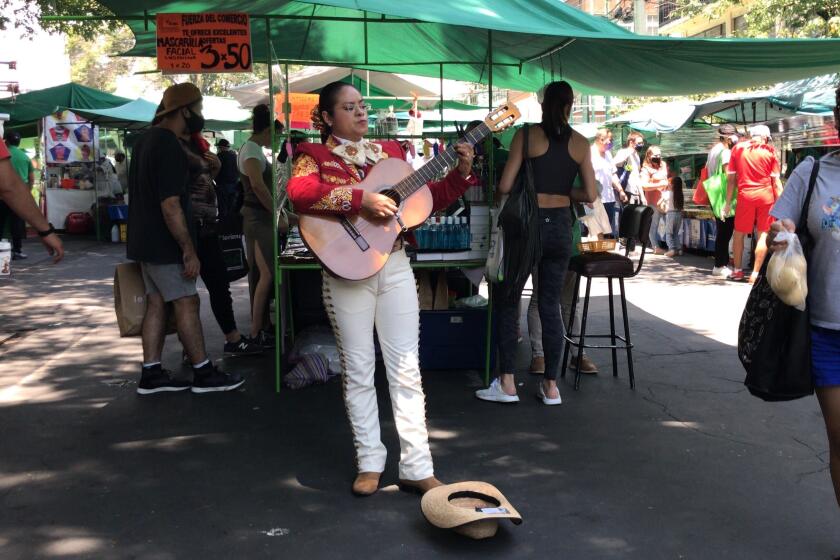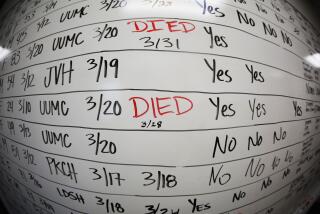Mexico leads the world in healthcare worker deaths from COVID-19, report says

MEXICO CITY — Mexico leads the world in coronavirus-related deaths among its healthcare workers, Amnesty International said in a new report.
The organization said that Mexico had reported 1,320 confirmed COVID-19 deaths of health workers so far, surpassing the U.S. at 1,077, Britain at 649, and Brazil at 634.
The report, issued Wednesday, is likely to revive debate about Mexico’s extremely low coronavirus testing rate, with fewer than 1 in 100 Mexicans tested. While Mexican officials have boasted that all healthcare workers have been tested once, that appears insufficient for people who face daily exposure to the virus over months.
Health professionals in Mexico have held many protests over a lack of adequate personal protective equipment.
Steve Cockburn, Amnesty International’s head of economic and social justice, called the worldwide death toll of over 7,000 health workers “a crisis on a staggering scale.”
“Every health worker has the right to be safe at work, and it is a scandal that so many are paying the ultimate price,” he said.
They died in the United States of COVID-19. Finally, their ashes are returning to Mexico.
Cockburn urged an international cooperative effort to ensure that every healthcare worker has adequate protective equipment.
According to figures released last week, 97,632 nurses, doctors and other hospital employees in Mexico have tested positive for the coronavirus since the pandemic began — about 17% of all the country’s cases up to that point. Nurses accounted for 42% of those infected, doctors made up 27% and other hospital employees, such as technicians, aides and maintenance and cleaning staff, accounted for 31%.
The Mexican government has insisted since March that hospital workers have all the protective gear they need, but on several occasions, hospital employees have blocked streets in Mexico City displaying what they said was ill-fitting, insufficient or substandard gear.
Death statistics vary, depending on who gets classified in each country as a healthcare worker, how deaths are logged as confirmed COVID-19 fatalities, and how they are reported.
Parties are crucial to Mexican culture, binding family and community. The pandemic has put them on hold.
The PanAmerican Health Organization, for example, lists 2,506 COVID-19 deaths among health workers in the Americas, including the same 1,320 deaths for Mexico but only 240 for Brazil and 660 for the U.S.
Carissa F. Etienne, director of the agency, said Wednesday that the Americas have “the highest number of healthcare workers infected in the world.”
“In the U.S. and Mexico — which have some of the highest case counts in the world — health workers represent one in every seventh case,” Etienne said. “Countries must ensure that health workers can do their jobs safely.”
In April, a public hospital in the northern Mexican steel town of Monclova became the center of a coronavirus outbreak that sickened at least 26 members of the medical staff and killed one of its doctors.
According to one hospital employee, a patient came to the emergency room at the Monclova hospital March 15 with acute respiratory distress. Once an intensive care doctor diagnosed it as a probable coronavirus infection, emergency room staff requested personal protection equipment, but it was not provided.
During the week the patient was treated in the emergency room, three shifts of medical staff were exposed to him. The patient eventually died. Hospital workers began falling ill soon afterward.
The Amnesty report also notes that “there have been reports that hospital cleaners in Mexico are especially vulnerable to infection. Many cleaners in health settings in Mexico are outsourced, which means they have less protection.”
In addition, there have been several confirmed cases of infectious medical waste piling up at Mexican hospitals or being illegally dumped elsewhere.
More to Read
Sign up for Essential California
The most important California stories and recommendations in your inbox every morning.
You may occasionally receive promotional content from the Los Angeles Times.











